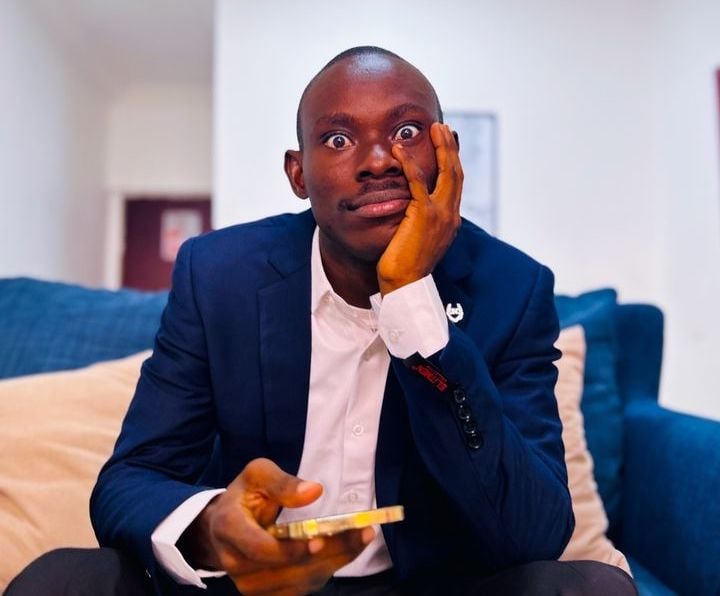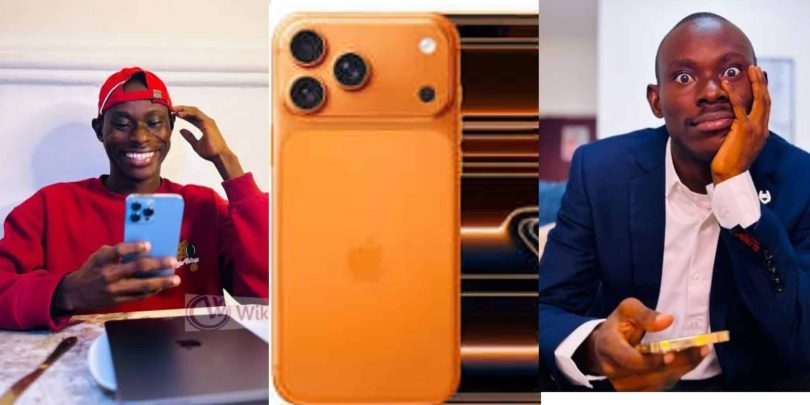Nigerian TikTok influencer, GehGeh, has voiced regret after spending millions of naira on an iPhone 17 Pro Max, as confusion grows over fake and rebranded versions circulating across the country.
In a TikTok video posted on Saturday, GehGeh confessed that he felt deceived after realising that even experts could not differentiate between the original and cloned models of the highly coveted device. “Every day I wake up, I cry inside me. I regret carrying my millions to buy this phone,” he said emotionally.

He explained that he initially bought the gadget because of its prestige, believing that owning it reflected success. However, he now finds himself explaining to people that his phone is genuine, a task which has become exhausting and embarrassing.
Confusion deepens over fake iPhone 17 models
The controversy surrounding the iPhone 17 began earlier in October when Nigerian businessman and investor, Blord, unboxed what he claimed was a “modified iPhone 17 Pro” selling between ₦400,000 and ₦450,000. The device was later exposed as a repackaged iPhone XR designed to resemble Apple’s latest flagship model.
This revelation ignited widespread outrage and confusion online, with many Nigerians admitting they might have purchased counterfeit versions unknowingly. The situation has led to intense scrutiny of phone dealers and the authenticity of devices sold locally.
Social media platforms like X and Instagram have since been flooded with reactions, jokes, and warnings from users urging buyers to verify sources before spending huge sums on trendy gadgets.
Calls for consumer caution grow
Following GehGeh’s confession, social media users have expressed mixed reactions, with some mocking the influencer while others sympathised with his frustration.
A user wrote, “You go buy iPhone 17 for Nigeria, now you dey explain say no be fake, na lesson be that.”
Others criticised Nigerians’ obsession with appearances, urging buyers to prioritise functionality and authenticity over status symbols. “People want shortcuts to luxury, and this is the result,” another commenter noted.
Apple Inc. has yet to issue an official statement on reports of fake iPhone 17 models circulating in Nigeria.
Meanwhile, the debate continues online, with many Nigerians, like GehGeh, left questioning the true value of their million-naira smartphones.

